
So, last week I was in Parachute, Colorado, a little town about halfway between Grand Junction and Glenwood Springs, as part of our big celebration of my in-laws’ 25th wedding anniversary. It’s always hard for me to find coffee that I like on the road. (I wasn’t even very impressed with the coffee I got in France!) I was pleased to see that there was something called “The Little Coffee Shack” a couple of blocks from our hotel and decided to go over there, since I was sure that the coffee provided as part of our free hotel breakfast would be terrible. My big beef with coffee made by anyone but me is that it’s too weak. Someone several years ago suggested that I start ordering what’s called a “shot in the dark,” which is regular brewed coffee with an added shot of espresso. I’ve done that several times and had fairly good results. Okay. I went over there and ordered. I even said, “Just to be sure, a ‘shot in the dark’ is . . .” and the girl on duty said, “Sure—I know what that is.” Well, folks, she must not have. What I got was basically colored water, for which I was charged $3.75.
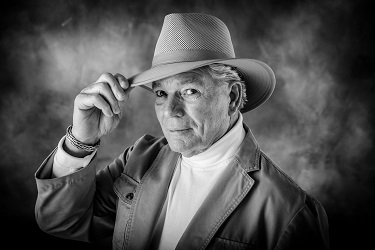 For some reason I got to thinking today about a situation from back in my grad school days, one which I may have written about before. For my master’s thesis and recital I had a teacher assigned to me for us to work one-on-one. She had extremely strong opinions about how my writing should be done; she was a writer herself, and she thought her process was the only way to go. So she informed me early on that I would have a certain number of pages due each week—five, I think. I protested. “I need time to research and think about what I want to say.” That was fine, she assured me. I might end up throwing those pages away, but I needed to do them anyway. Well, what a pain. I did what she asked, but in the end I wasted a lot of time, because I was being forced to follow her process instead of my own.
For some reason I got to thinking today about a situation from back in my grad school days, one which I may have written about before. For my master’s thesis and recital I had a teacher assigned to me for us to work one-on-one. She had extremely strong opinions about how my writing should be done; she was a writer herself, and she thought her process was the only way to go. So she informed me early on that I would have a certain number of pages due each week—five, I think. I protested. “I need time to research and think about what I want to say.” That was fine, she assured me. I might end up throwing those pages away, but I needed to do them anyway. Well, what a pain. I did what she asked, but in the end I wasted a lot of time, because I was being forced to follow her process instead of my own.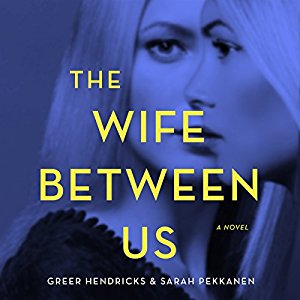 Well, I’m still plowing through
Well, I’m still plowing through  So far I’ve mentioned two New Year’s Resolutions: my main one, phrased as the question “Why deny myself the pleasure?” about not letting small annoyances spoil my enjoyment, and my desire to read more books in the place of online articles. In pursuit of that second resolution I’ve gotten s little over a quarter of the way through
So far I’ve mentioned two New Year’s Resolutions: my main one, phrased as the question “Why deny myself the pleasure?” about not letting small annoyances spoil my enjoyment, and my desire to read more books in the place of online articles. In pursuit of that second resolution I’ve gotten s little over a quarter of the way through 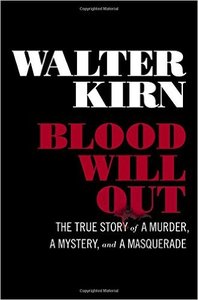
 More great material from our trip last week. We visited a wonderful church in Kansas City, Mission Road Bible Church, and heard a thought-provoking sermon on the parable of the good Samaritan, or, as the speaker (a young man named Adam Bueltel who seemed wise beyond his years) called it, “
More great material from our trip last week. We visited a wonderful church in Kansas City, Mission Road Bible Church, and heard a thought-provoking sermon on the parable of the good Samaritan, or, as the speaker (a young man named Adam Bueltel who seemed wise beyond his years) called it, “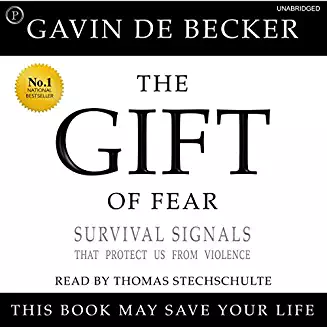 The Gift of Fear and Other Survival Signals that Protect Us from Violence by Gavin de Becker, Dell Trade Paperback, 1999, also available in other formats. I’m not sure why I was reminded of this book and put it on hold at the library. I had read it before and remembered portions of it quite well, but it was well worth re-reading. De Becker runs a security firm, providing services and counseling to people who feel and/or indeed are under threat. He himself grew up in an extremely violent home, but instead of becoming violent himself he decided to help reduce violence by giving people the tools they need to protect themselves.
The Gift of Fear and Other Survival Signals that Protect Us from Violence by Gavin de Becker, Dell Trade Paperback, 1999, also available in other formats. I’m not sure why I was reminded of this book and put it on hold at the library. I had read it before and remembered portions of it quite well, but it was well worth re-reading. De Becker runs a security firm, providing services and counseling to people who feel and/or indeed are under threat. He himself grew up in an extremely violent home, but instead of becoming violent himself he decided to help reduce violence by giving people the tools they need to protect themselves.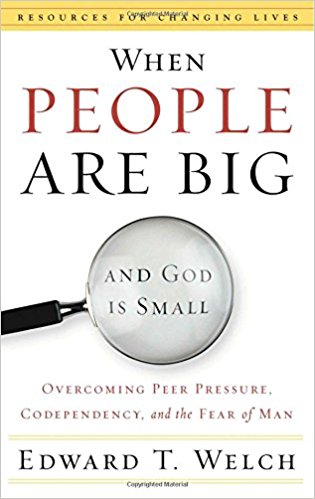 When People are Big and God Is Small: Overcoming Peer Pressure, Codependency, and the Fear of Man by Edward T. Welch, P & R Publishing, 1997. Published in cooperation with The Christian Counseling and Education Foundation.
When People are Big and God Is Small: Overcoming Peer Pressure, Codependency, and the Fear of Man by Edward T. Welch, P & R Publishing, 1997. Published in cooperation with The Christian Counseling and Education Foundation.
 I’ve been writing quite a bit recently about two subjects: tools and planning. As I write this I’m facing two frantic days to prepare for tomorrow night’s concert and reception. Yesterday I got all of my grocery shopping done, a task that I would normally have put off until today. So today can be solely dedicated to food prep that can be done ahead, housework, and going over my music. We have our second concert-week rehearsal this evening, which will be fraught with the usual angst over our entrances and exits. (Why we can’t just have a standard procedure that we always follow is beyond me, but I guess it keeps us from getting complacent.)
I’ve been writing quite a bit recently about two subjects: tools and planning. As I write this I’m facing two frantic days to prepare for tomorrow night’s concert and reception. Yesterday I got all of my grocery shopping done, a task that I would normally have put off until today. So today can be solely dedicated to food prep that can be done ahead, housework, and going over my music. We have our second concert-week rehearsal this evening, which will be fraught with the usual angst over our entrances and exits. (Why we can’t just have a standard procedure that we always follow is beyond me, but I guess it keeps us from getting complacent.) . . . It’s only inspiring that works.” (Amit Sood, Professor of Medicine, Mayo Clinic)
. . . It’s only inspiring that works.” (Amit Sood, Professor of Medicine, Mayo Clinic)